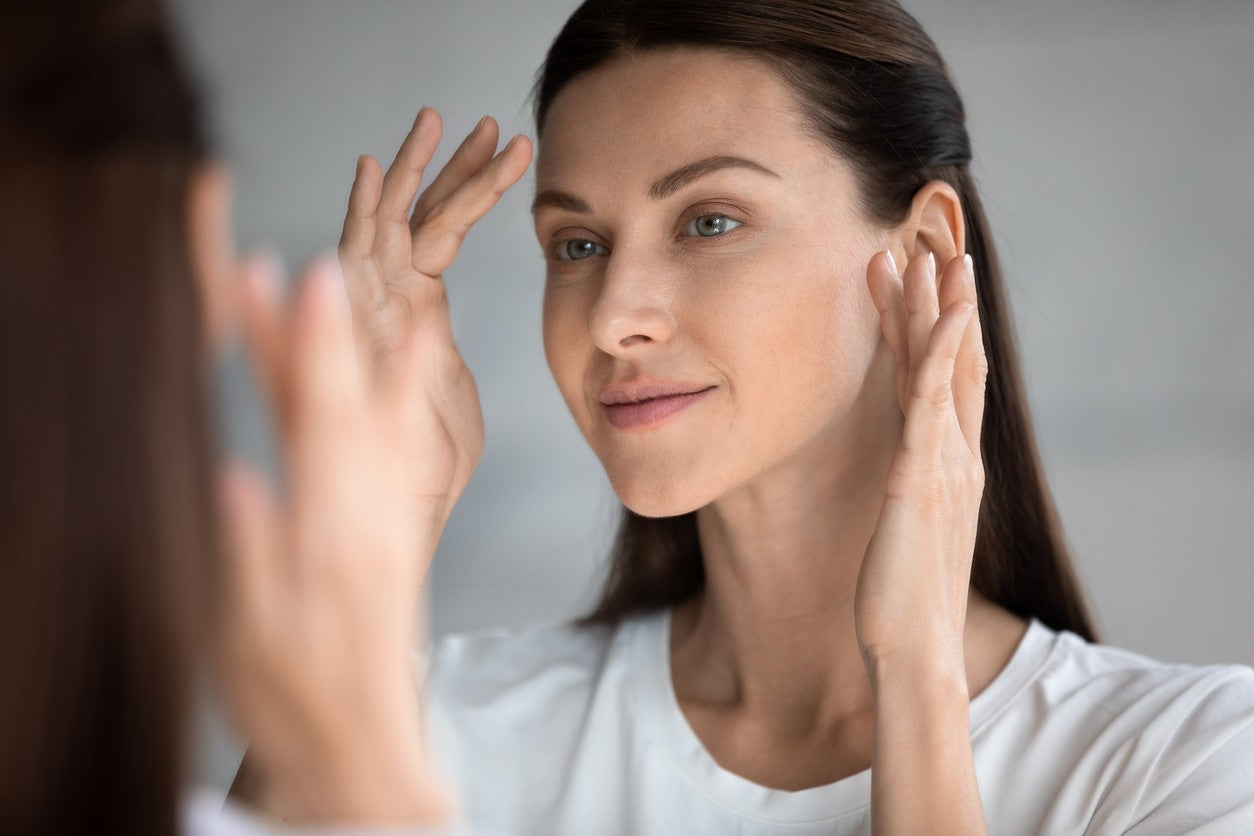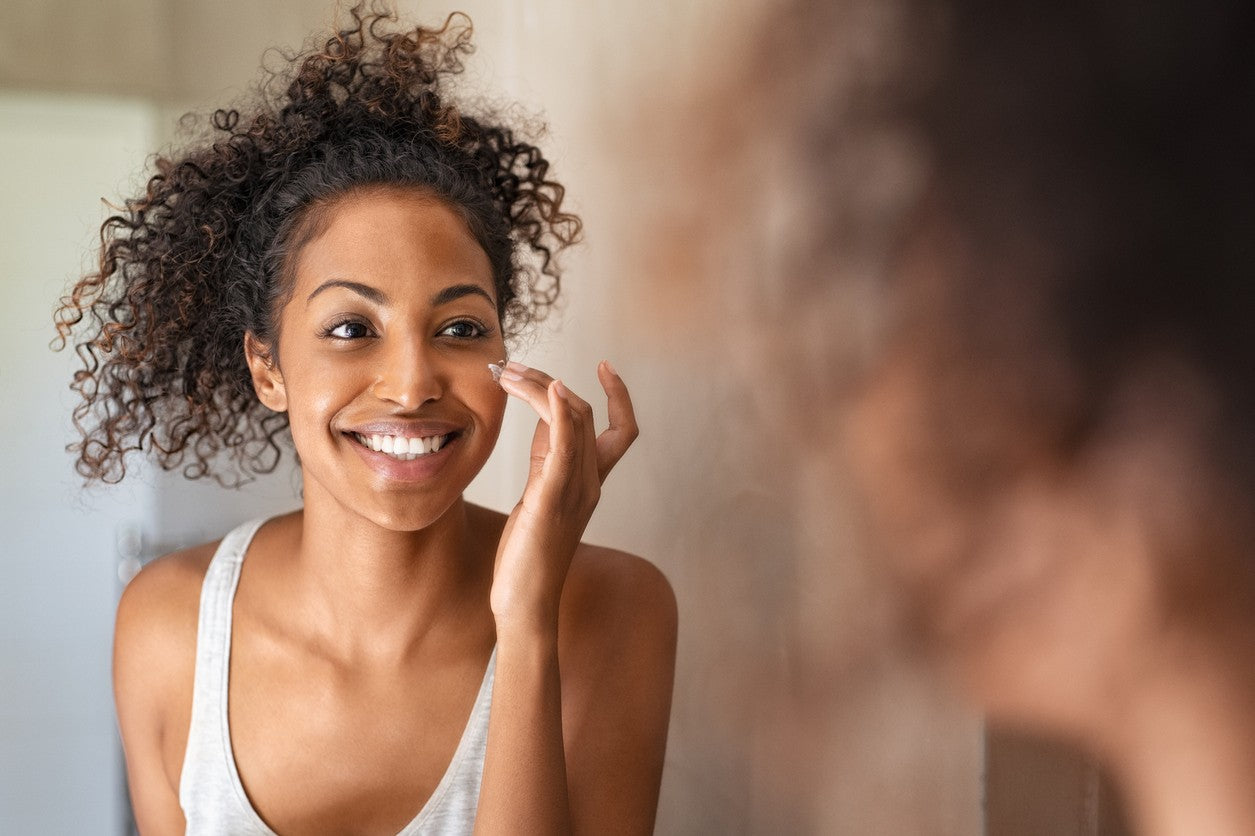
Pomegranate Seed Oil vs. Rosehip Oil
You may have heard about pomegranate seed oil and rosehip oil in the past, and you may even have them in some of your skincare items now. Did you know that both have anti-aging benefits and can be excellent for your body and skin? These two plant oils are known to provide benefits to the skin and may work as anti-inflammatories, which is why it’s so common to see them in cosmetic products like our Forever Radiant Serum Kit.
We’ve put together a full article on the benefits of each of these oils and why adding them to your skincare routine is the key to minimizing wrinkles, repairing skin damage, and more. At Averr Aglow, we believe in the power of these two amazing plants and know they can help you feel confident in your skin.
What Are Rose Hips?

Rose hips are common, widespread plants belonging to the Rosa species. These wild plants have been used for generations in the treatment of several illnesses and diseases internally and externally.
Rosehips come from the wild rose, Rosa canina. It’s found all over the world, but it’s primarily located in Europe, Asia, and Africa. A secondary variety, Rosa rubigosa, comes from the Andes. That variety was used by Aubrey Hampton, a pioneer in the beauty industry who turned this rose, which she called Mosqueta, into a shampoo and conditioner.
In skincare, rosehip oil is used more often. Rosehip seed oil comes from an extraction process. The fruit is pressed, and oil comes from the fruit and seeds. It’s also possible to harvest from only the seeds. In either case, the oil that is harvested is cold-pressed to preserve the nutrients inside.
What Are Pomegranate Seeds?

Pomegranate seeds come from the pomegranate fruit. The seeds make up around 3% of the weight of the fruit, and each is covered with aril. Aril is a juicy, sweet, jelly-like covering around the seed.
Pomegranate seeds are high in vitamin E and magnesium. The seeds are also rich in fiber, phenolic acids, and polyphenols, so they are excellent antioxidants.
Pomegranate seed oil, sometimes just called pomegranate oil, is made from the seeds of pomegranates, which are also known by the scientific name Punica granatum. This plant comes from the Mediterranean region and has been studied for its therapeutic properties for generations.
To get pomegranate seed oil for oils, serums, and creams, the seeds are typically cold-pressed. It’s also possible to find pomegranate skin oil. This oil comes only from the skins of the fruit and is made into an extract.
Natural Beauty Oils Anti-Aging Benefits

Natural beauty oils are exciting because they offer excellent benefits without as many risks as medications.
Pomegranate seed oil's skin benefits include helping the skin age healthily. It’s known to aid in cell regeneration and to help tone and hydrate crepe-like, dry skin. It is also known to have strong antioxidant and anti-inflammatory properties, so it can help with dark spots, wrinkles, and more. Studies have found that it can even improve skin elasticity.
Rosehip oil may be used for many different skin conditions. It’s known to soothe sunburnt skin and to reduce hyperpigmentation of scars or stretch marks. Rosehip oil may reduce the appearance of age spots and aid in repairing damage to the skin. Clinical studies have shown that rosehip oil has the potential to improve skin damage even when it’s decades old.
Natural Beauty Oils Anti-Inflammation & Hydration Benefits

Pomegranate oil has been studied and found to have anti-inflammatory benefits. Pomegranate oil may also help reduce the likelihood of skin cancer and is highlighted as a possible chemopreventive agent.
Rosehip oil has been shown to offer anti-bacterial, anti-inflammatory, and wound healing benefits. Rosehip oil has been studied for its potential benefits for inflammatory dermatitis conditions such as eczema.
Pomegranate Seed Oil vs. Rosehip Oil

Both pomegranate seed oil and rosehip oil have benefits that help your skin feel and look better. However, they are different, so it’s important to go over those differences and choose the oil that will help you reach your goals. If you want more Vitamin C benefits for your skin or are looking to protect yourself against redness and inflammation, then you may want to elect to use one oil or the other. Of course, you can use them together, too.
Pomegranate Seed Oil
Pomegranate seed oil comes from a plant called Punica granatum. It contains important compounds such as:
- Punicic acid
- Vitamin C
- Vitamin K
Pomegranate oil for anti-aging is excellent for the skin and body. It is helpful in the reduction of skin cancer risk and in helping fight inflammation.
Pomegranates are associated with anti-aging because their oils are made up of beneficial bioflavonoids. These, along with extensive fatty acids, pomegranate oil can protect the skin against sun damage. This oil naturally has an SPF of around eight, creating a kind of built-in sunscreen for anyone who uses it.
Rosehip Oil
Rosehip oil has unique benefits for beautiful skin. With high levels of polyphenols, carotenoids, vitamins B, C, E, and other nutrients, rose hips have been studied for their anti-aging effects. In a double-blind controlled clinical trial with both male and female volunteers, rosehip powder was shown to reduce the depth of crow’s feet, improve skin elasticity, and increase moisture levels in the skin.
So, is rosehip oil anti-aging? Studies have shown that it does have the potential to help minimize the appearance of wrinkles and fine lines while improving the elasticity and hydration of your skin. That may not be enough to turn back the hands of time, but it can certainly improve the skin and help prevent premature aging.
If you’re trying to decide between rosehip or pomegranate oil, here are several specific differences and similarities. Pomegranate oil may be thick, so it’s normally mixed with a carrier oil
Rosehip oil tends to absorb quickly, and it is not very greasy
It’s possible to combine these two oils. A combination of a smaller amount of pomegranate oil, around 5%, with 10-15% of rosehip oil with a carrier is a good place to start if you like to mix your oils.
Incorporating Natural Beauty Oils into Your Skincare Routine
With so many potential benefits, it’s necessary to consider these natural beauty oils in your skincare routine, as well. With natural anti-aging ingredients like rosehips and pomegranates, you’ll be able to focus on reducing inflammation and improving the appearance of your skin without risking the side effects of medications.
We offer several products with rosehip oil or pomegranate seed oil as a part of the ingredients. Our Flawless Nourishment Cream is fortified with rosehip and other ingredients, so it can address issues like fine lines, inflamed skin, and breakouts. For clear skin, our Clear Skin Kit offers moisturizing and anti-inflammatory results.
With so many benefits, now is a great time to try these oils in your skincare routine. Address fine lines, improve skin elasticity, and more with just a small amount of product each day.






